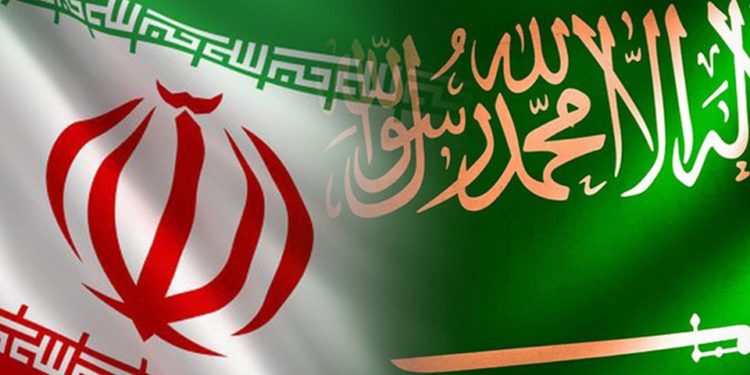Death sentences and imprisonment against accused of spying for Iran

Saudi’s state television announced that a court affiliated with the Saudi regime had sentenced a citizen to death and imprisoned seven others on charges of treason and intelligence in favour of Iran.
“The Specialized Criminal Court issued a preliminary ruling on a group of eight people, all Saudis. The decision included the sixth defendant’s death sentence in terms of tampering because he was found guilty of betraying his homeland and his trusted trust through his communication in favour of a person from Iranian intelligence.”
The report, which was published by the newsletter on its website, added that the decision included “the consolidation of the remaining defendants of prison terms for a total of fifty-eight years, due to their association and cooperation with suspicious persons working in the Iranian embassy.”
In addition to arbitrary arrests and targeting of opponents internally and externally, Crown Prince Mohammed bin Salman resorted to raising the frequency of executions to perpetuate repression in the Kingdom.
The human rights concern is increasing about the Kingdom’s human rights record, day by day, which belies the new and different picture that Bin Salman is trying to export to the world.
In 2019, in the wake of the uproar caused by the assassination of dissident journalist Jamal Khashoggi at his country’s consulate in Istanbul, and thus the kingdom’s presence in the spotlight and scrutiny, Bin Salman executed the largest number of prisoners in recent years.
According to Reprieve, the Kingdom executed 184 people last year, including 90 foreigners, the highest figure recorded by the organization since 2015, the start date for tracking the executions announced officially in the country.
In 2014, Saudi Arabia executed 88 people, in 2015 the number doubled to record 157 executions.
This number remained stable for several years until it was shattered last year, an increase of 35 executions from 2018.
Just in one day last year, April 23, Saudi Arabia executed 37 people.
As of the moment in 2020, four people were executed, according to the organization, and it is not known how many people are awaiting the death sentence, but three well-known names awaiting imminent execution are Ali Al-Nimr, Abdullah Al-Zahir and Dawood Al-Marhoun who were convicted for their participation in the demonstrations in the Kingdom during the 2011 Arab Spring.
The three young men were under the age of 25 and were arrested as a teenager.
Executions are escalating despite Bin Salman’s pledge, in an interview with Time magazine in 2018, to “reduce” the use of the death penalty and restrict it to special cases such as homicides.
Two days ago, Human Rights Watch said in its global report 2020, that the Saudi authorities implemented a comprehensive crackdown on dissidents and independent activists, including two waves of mass arrests, in 2019.
The arrests and harassment coincided with the most important developments related to Saudi women in recent years, including the removal of restrictions imposed on women over 21 years when travelling, and giving women greater control over civil status issues.
Michael Page, deputy director of the Middle East division at Human Rights Watch, said: “Reforms relating to Saudi women do not erase the widespread harassment and arrests of Saudi activists and thinkers, including women’s rights activists, who have expressed their opinions secretly or publicly. If Saudi Arabia has any hope of re-polishing its tarnished image, the authorities should immediately release all detainees only for their peaceful criticism.
Saudi officials, including bin Salman, have not faced any real justice during 2019 in relation to the violations committed by state security agents during the past few years, including the killing of journalist Khashoggi and the alleged torture of women human rights defenders.
Dozens of Saudi dissidents and activists, including four prominent women human rights defenders, remain in detention, with others facing unfair trials on charges related only to their public criticism of the government or peaceful human rights work. Collective arrests in April and November targeted more than 20 Saudi intellectuals and writers.





